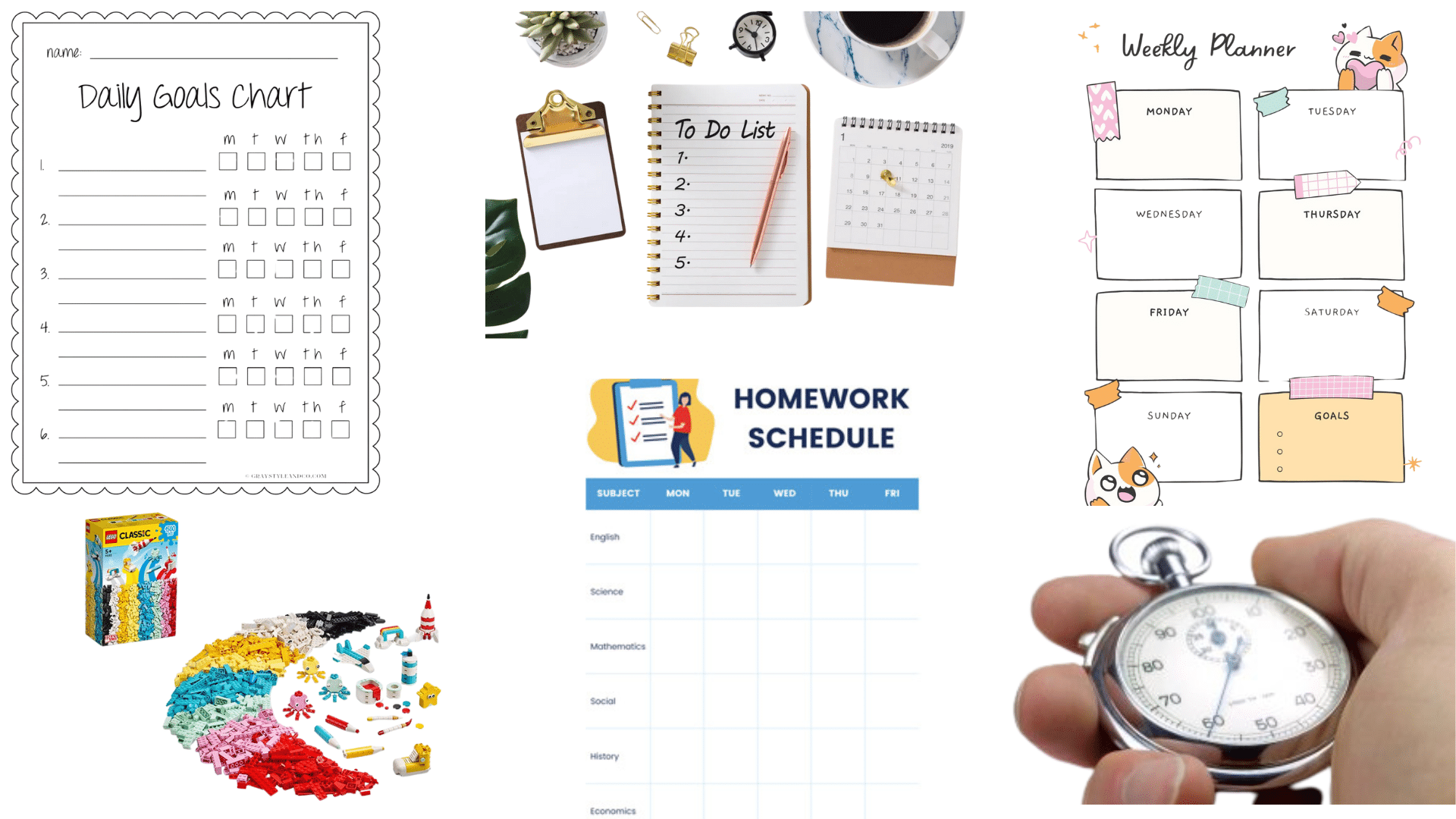Why can some kids remember complex video game rules but forget to brush their teeth? Parents everywhere face this puzzle. Their child seems smart and capable, yet simple daily tasks become constant battles.
Many families assume their child is just being difficult or lazy. They try charts, rewards, and consequences, but nothing seems to stick. The frustration builds on both sides.
These aren’t behavior problems. They’re executive functioning challenges. And the solution isn’t more rules or stricter consequences.
Simple, targeted activities can actually rewire how a child’s brain handles planning, focus, and self-control. These aren’t complicated therapy exercises either. They’re fun games families can play during car rides, at dinner, or while doing chores.
What are Executive Functioning Activities?
Executive functioning refers to the mental skills that help us plan, organize, make decisions, stay focused, and control our emotions and behavior to reach goals.
These skills are developed over time and can be improved with practice. Executive functioning activities are tasks designed to strengthen these skills. They help improve attention, memory, impulse control, time management, and problem-solving.
Executive function skills start developing in early childhood and continue maturing into adulthood. Here’s the general timeline:
- Early Childhood (0-5 years): Basic self-control and simple planning.
- School Age (6-12 years): More refined skills like working memory and time management.
- Adolescence (13-18 years): Continued development, especially in planning, decision-making, and impulse control.
- Adulthood: These skills continue to mature and are crucial for daily life tasks, work, and relationships.
With practice, they improve in areas like work, school, and personal life, making us more effective at managing everyday challenges.
Smart and Simple Activities to Boost Executive Functioning Skills

Executive functioning activities help children improve skills like planning, organization, and time management. These activities build focus, self-control, and problem-solving abilities for everyday tasks.
1. Make a Weekly Planner
Creating a weekly planner helps children organize tasks and break down larger tasks into manageable steps. This also helps them visualize their week and manage their time better.
- Skill Developed: Time management, organization
- In daily life: Children can use the planner to plan homework, chores, and activities to stay on top of daily responsibilities.
2. Use a Timer for Tasks
Setting a timer encourages children to focus on one task at a time and limits distractions. It also helps them practice time awareness and complete tasks within a set timeframe.
- Skill Developed: Focus, time management
- In daily life: Children can use a timer to manage study time, chores, or even screen time, helping them stay focused and avoid procrastination.
3. Create a To-Do List
Making a to-do list allows children to prioritize tasks and visualize what needs to be done. It encourages them to break tasks into manageable steps and avoid forgetting important tasks.
- Skill Developed: Organization, task management
- In daily life: Children can create lists for school assignments, household chores, and personal goals, helping them stay organized throughout the day.
4. Sort School Supplies
Sorting school supplies teaches children how to categorize and keep items organized. It helps develop their attention to detail and improves their ability to find things when needed.
- Skill Developed: Organization, attention to detail
- In daily life: Children can practice organizing their school materials at the beginning of each week to ensure they are prepared for the week ahead.
5. Practice Mindful Breathing
Mindful breathing helps children calm their bodies and minds, improving focus and emotional regulation. It also teaches them how to manage stress and reduce anxiety.
- Skill Developed: Emotional regulation, focus
- In daily life: Children can practice mindful breathing before school or during stressful moments, helping them stay calm and focused when needed.
6. Build with LEGO
LEGO building helps children develop problem-solving skills by following instructions and experimenting with their own designs. It also fosters spatial awareness and creativity.
- Skill Developed: Problem-solving, spatial reasoning
- In daily life: Children can use LEGO sets to engage in creative play that challenges their critical thinking, coordination, and motor skills.
7. Make a “Daily Goal” Chart
A daily goal chart allows children to set clear, achievable goals for the day. It helps them prioritize tasks and track their progress throughout the day.
- Skill Developed: Goal setting, focus
- In daily life: Children can use a goal chart for school tasks or personal goals, ensuring they stay on track and focused on what needs to be completed.
8. Role-Playing Problem Solving
Role-playing helps children practice decision-making and thinking through solutions in a fun and interactive way. It also teaches them empathy and how to approach problems with different perspectives.
- Skill Developed: Problem-solving, empathy, decision-making
- In daily life: Children can role-play situations like handling a disagreement with a sibling or deciding what to do when they face a challenge at school.
9. Create a Homework Routine
A consistent homework routine helps children know exactly when and where to focus on their assignments. It reduces distractions and builds a habit of productivity.
- Skill Developed: Time management, self-regulation
- In daily life: Children can create a specific time and place for homework every day, helping them stay organized and productive.
10. Do a Puzzle Together
Solving puzzles together promotes problem-solving, focus, and patience. It also encourages children to think critically and stay engaged in the task at hand.
- Skill Developed: Problem-solving, focus, and patience
- In daily life: Children can work on puzzles during their free time, improving their ability to stay engaged and persist through challenges.
11. Use Visual Timelines
Visual timelines help children understand the sequence of tasks or events, allowing them to break down larger tasks into smaller, more manageable parts.
- Skill Developed: Time management, task sequencing
- In daily life: Children can create timelines for daily routines or long-term projects, helping them stay on track and plan out each step in advance.
12. Create a Family Calendar
A family calendar helps children understand the importance of scheduling and time management. It also provides a visual reference for upcoming events and tasks.
- Skill Developed: Time management, organization
- In daily life: Children can use a family calendar to keep track of school activities, appointments, and family events, ensuring they stay organized and responsible.
13. Practice Self-Reflection
Self-reflection encourages children to think about their actions and outcomes, helping them understand what worked well and what they could do differently next time.
- Skill Developed: Self-awareness, critical thinking
- In daily life: After a task or event, children can reflect on what went well and what they can improve, fostering a habit of self-awareness and growth.
14. Play Strategy Games
Playing strategy games like chess or checkers helps children practice decision-making, planning, and critical thinking. It also encourages patience and adaptability.
- Skill Developed: Strategic thinking, decision-making, planning
- In daily life: Children can play strategy games regularly, allowing them to practice making decisions and thinking ahead in a fun, competitive way.
15. Declutter a Space
Decluttering teaches children how to prioritize what’s important and organize their environment. It also helps them make decisions about what to keep and what to let go of.
- Skill Developed: Organization, decision-making
- In daily life: Children can declutter their room, school supplies, or study space regularly, fostering responsibility and organization.
16. Make a Priority List
Creating a priority list helps children decide which tasks are most important and helps them focus on completing those first.
- Skill Developed: Prioritization, time management
- In daily life: Children can make a priority list each day to decide which tasks to complete first, whether for school, chores, or personal projects.
17. Do a Scavenger Hunt
A scavenger hunt involves following clues, solving problems, and managing time to complete tasks. It’s a fun way to practice problem-solving and task completion in a game-like setting.
- Skill Developed: Focus, problem-solving, time management
- In daily life: Children can participate in or create scavenger hunts around the house or yard, practicing their problem-solving skills and focusing in a fun, interactive way.
Helping Your Child Build a Strong Future
As a parent, it’s easy to notice what your child struggles with, especially during tough times. But instead of focusing on what they can’t do, try to see the endless possibilities they can achieve through learning and growth.
Executive functioning skills, just like any other skill, can be developed with time and practice. The key is not to rush the process but to walk alongside your child as they grow, showing them love, patience, and understanding every step of the way.
When these skills are integrated into their daily life, they can make a huge difference in their academic journey and overall success.
With encouragement, a child can learn to approach problems confidently, handle tasks independently, and eventually grow into a self-reliant, capable adult. Having a strong support system provides the strength needed to face any challenge without feeling overwhelmed.
Free Resources for Everyday Learning
These free online resources offer interactive tools, games, and activities to support children’s learning and boost executive functioning skills. They make educational development fun and accessible for both parents and kids.
| Resource | When It’s Used | Features |
|---|---|---|
| GoNoodle | Used for fun movement breaks and brain breaks | Interactive videos for physical activities, dancing, mindfulness exercises, and focus games. |
| BrainPOP | Used for educational videos and lessons | Animated videos explaining topics in science, math, social studies, and more, with quizzes. |
| Time Timer | Used for time management and staying focused | Visual timer to track time for tasks, helps with focus, and managing transitions or tasks. |
| Learning Resources | Used for buying educational toys and resources | High-quality educational toys, games, and activities for learning in math, science, and more. |
| SuperKids Educational Software | Used for finding and reviewing educational software | Software reviews for educational games and tools, helping parents choose suitable products. |
| FunBrain | Used for educational games and reading activities | Free interactive games, books, and learning tools for math, reading, and problem-solving. |
| K5 Learning | Used for supplemental learning in math and reading | Online programs for children in kindergarten through grade 5, covering math, reading, and more. |
Bottom Line
Building executive functioning activities is essential for children to help them stay organized, manage their time, solve problems, and handle tasks independently.
The activities listed above are simple ways to help children improve these skills in fun and everyday ways.
By supporting them with love and encouragement, children will become more confident, independent, and ready to face any challenge. The key is consistency and a positive attitude along the way.
We’d love your feedback! If you found these activities helpful, or if you have more ideas or questions, please leave a comment or send us a message to let us know how these activities worked for you!
















